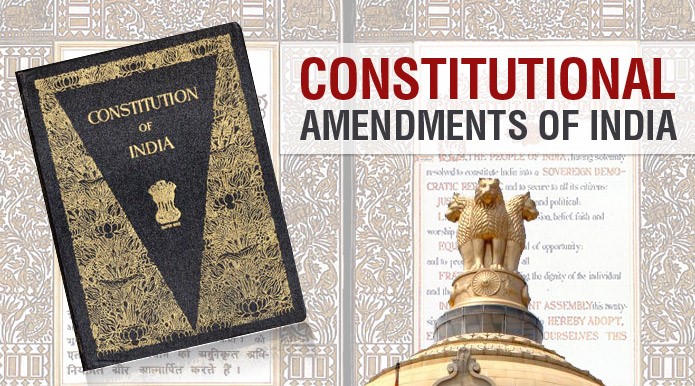123rd Amendment Bill:
-
Lok Sabha has unanimously passed Constitution (123rd Amendment) Bill, 2017 by two-third majority.
-
The constitutional amendment bill seeks to grant National Commission on Backward Classes (NCBC) constitutional status at par with National Commission for Scheduled Castes (NCSC) and National Commission for Scheduled Tribes (NCSTs).

Key Features of Bill
-
Role of NCSC: The Bill removes power of NCSC to examine matters related to backward classes. Currently, under Constitution NCSC has power to look into complaints and welfare measures with regard to Scheduled Castes (SCs), backward classes (OBCs) and Anglo-Indians.
-
Constitutional status to NCBC: The Bill seeks to make NCBC Constitutional body by inserting new article 338B in constitution composition, mandate, functions and various officers of NCBC. Article 338B will give NCBC authority to examine complaints and welfare measures regarding socially and educationally backward classes.
-
Backward classes: The Bill inserts article 342-A to empower President to specify socially and educationally backward classes in various states and union territories. He can do this in consultation with Governor of concerned state. However, law enacted by Parliament will be required if list of backward classes is to be amended.
-
Composition and service conditions: The Bill mentions that NCBC will comprise of five members appointed by President. Their tenure and conditions of service will also be decided by President through rules.
-
Functions: Bill defines following duties of NCBC (i) investigate and monitor safeguards provided to backward classes under Constitution and other laws are being implemented (ii) inquire into specific complaints regarding violation of rights of backward classes and (iii) advise and make recommendations on socio-economic development of such classes. Union and State governments will consult NCBC on all major policy matters affecting socially and educationally backward classes. NCBC will be required to present annual reports to President on working of safeguards for backward classes. These reports will be tabled in Parliament and state legislative assemblies of concerned states.
-
Powers of a civil court: The Bill gives NCBC powers of civil court while investigating or inquiring into any complaints. These powers will include summoning people and examining them on oath, production of any document or public record and receiving evidence.